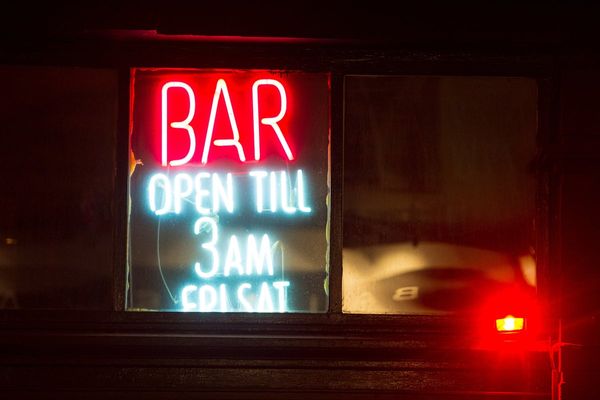
During a Fourth of July parade in Highland Park, Illinois, celebrations came to an abrupt halt after a gunman opened fire. Video from the parade shows panic as hundreds fled the area. Seven people were killed, with at least 46 others wounded. But in the shooting’s immediate aftermath, attempts to understand the shooter’s motivations showed how mainstream extremism discourse is failing us.
Following mass shootings, there’s a rush to identify the shooter’s motives and answer the question of what radicalized them. Often, people look to a shooter’s manifesto for answers (although manifestos shouldn’t be taken at face value). In the case of the Highland Park shooter, there isn’t one. And while he has a violent digital legacy, the lack of overt political motivations makes this shooting different from other acts of white supremacist extremism.
Or, at least, that’s the conclusion some people are running with.
This week, NPR published an article asserting experts agree that there is “no clear political or ideological motivation” for the shooting. Instead, the shooter “fits with a still-emerging profile of mass shooter” that’s less known than “white supremacists or radical Islamists.” This seemingly new profile is defined by involvement in dark, online subcultures, nihilism, and an obsession with violence, per NPR.
In less than 24 hours, NPR’s article was ratio’d to hell and back on Twitter. One extremism researcher tweeted the “dark subcultures” NPR refers to are not without ideology but, actually, are well-documented as neo-Nazi recruitment platforms. On its face, NPR’s framing is awful, while the article asserts that the Highland Park shooter “has no ideological or political bent,” that’s hardly established truth. In April, on the last day of Passover, the shooter (who, by the way, was the administrator of a Discord server named “SS”) scoped out a local synagogue and was turned away by the rabbi there. The Jewishness of the Highland Park mass shooting has also been outlined by Jewish journalists.
On Twitter, screenshots are circulating of Emmi Conley, an independent researcher of far-right movements interviewed by NPR, clarifying there is no doubt that the shooter was racist and antisemitic. “He did this act of violence almost certainly because of those things,” Conley wrote. “But it wasn’t the thing he chose to present with when he did it, and that’s significant.”
This clarification isn’t all that much better to me. It still prioritizes what the shooter chose to lead with, and what he chose to “present,” rather than the clear points of evidence about why he did what he did. I’m not interested in understanding the Highland Park shooting through the quote-unquote experts’ lenses, because they’re bending over backward to mince words.
Instead, I want to revisit a topic I’ve discussed earlier: the uselessness of domestic terrorism (which includes anti-extremism) frameworks in addressing white supremacy. After last year’s Atlanta shooting, I wrote about how calling white supremacists “terrorists” doesn’t help. The Highland Park shooting showcases another issue with attempting to address white supremacy through the existing frameworks. Some people are trying to argue that this particular gunman might have been hateful, yes, but he doesn’t fit the profile of a white supremacist mass shooter. To which I have to ask: According to whose metrics?
I’ve always had issues with “white supremacist extremist” as a term because it seemed odd. After all, what is non-extreme white supremacy? Beyond semantics, white supremacist extremism as a category of focus has, ironically, obscured people’s views by trying to collapse white supremacy into a neatly understood box.
To be considered a white supremacist extremist, someone has to meet clear, identifiable standards. The Department of Homeland Security defines them as “individuals who seek, wholly or in part, through unlawful acts of force or violence, to support their belief in the intellectual and moral superiority of the white race over other races.”
Developing a profile of anything automatically risks hiding the various ways in which it might manifest. Something will always fall outside of the strict definition, whether on purpose or not. White supremacy is no exception. For example, the Ku Klux Klan is generally recognized as a white supremacist organization. But DHS is arguably a white supremacist entity, too. Its violence may not manifest exactly like the KKK’s, and it may use the language of national security, but that doesn’t erase actions that disproportionately target non-white people in this country.
According to experts, the Highland Park shooter doesn’t fit the bill of a white supremacist extremist because while he was “hateful,” as Conley tweeted, his environments “emphasized the violence over the hateful. It’s different than someone who leaves a manifesto saying ‘here is who I targeted and why.’”
Except it’s not, really. So the Highland Park shooter didn’t slap together a manifesto or write a slur on his gun to make his white supremacy overt. And? It’s the type of difference that might matter to academics theorizing for theory’s sake. But outside of that bubble, it has no practical value. This person took a high-powered rifle to a rooftop and indiscriminately shot at a crowd of people enjoying a neighborhood parade. That is by definition an extreme action.
The Highland Park shooter is not exceptional. He is not special or unique. He is a white supremacist. Focusing on him as an example of a new, emerging profile allows for the “dark subcultures” that NPR referred to to be read as new, mysterious creations. They become become falsely apolitical, detached from broader histories of the violence they glorify that only serves white supremacy as a whole.







